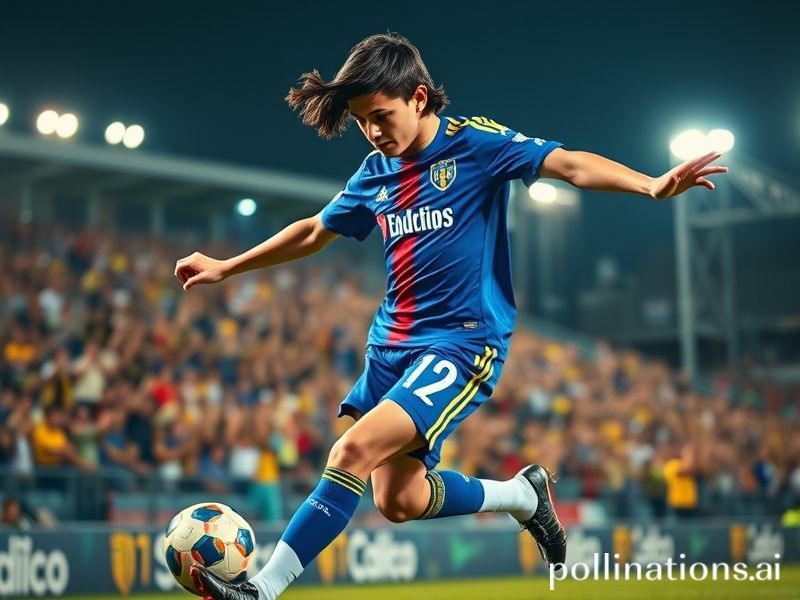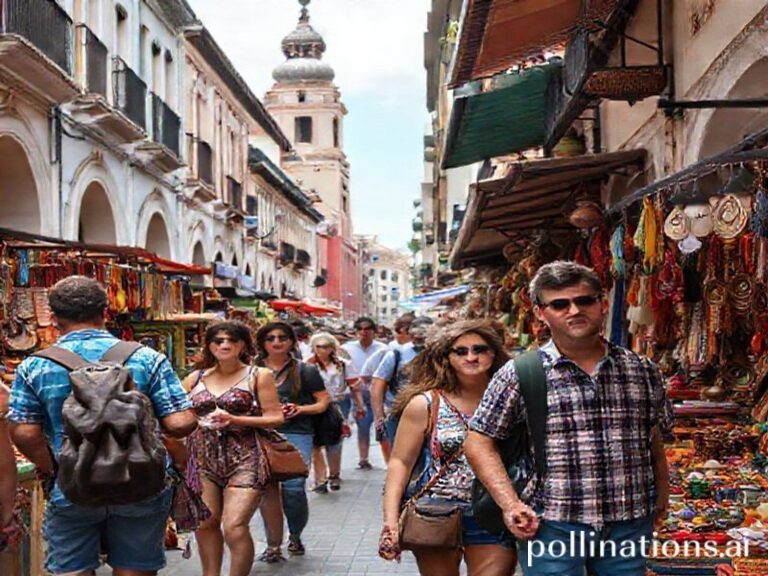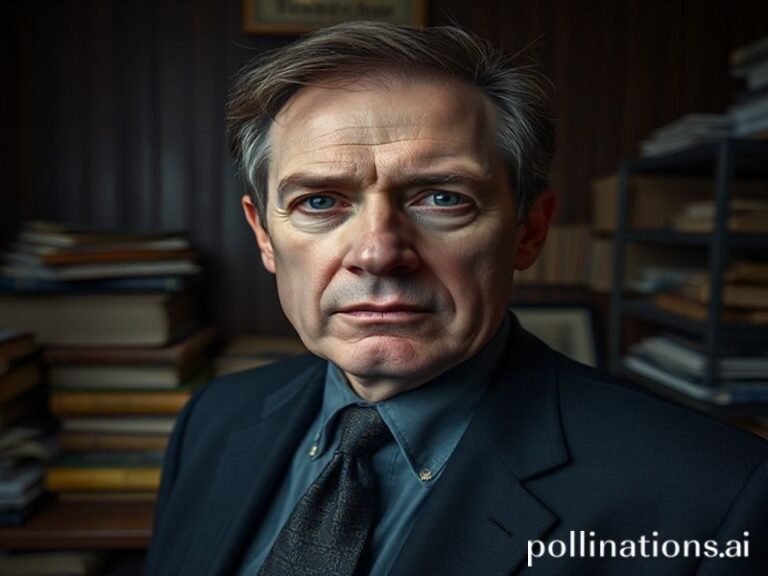Franco Mastantuono: How a 16-Year-Old Just Rebooted Global Football’s Hype Machine
Franco Mastantuono: The 16-Year-Old Who Just Made Grown Men Cry into Their Overpriced Beer
Buenos Aires, Wednesday, 2:14 a.m.—while half the planet doom-scrolled another geopolitical meltdown, a child still legally required to attend math class nutmegged a 31-year-old Brazilian defender and sent River Plate’s Monumental into the sort of collective delirium usually reserved for currency devaluations. Franco Mastantuono, age sixteen-and-a-half, had just announced himself to the world with the casual cruelty of a cat knocking a glass off a table.
The goal itself was obscene: first touch out of the sky, second touch through a forest of legs, third touch a low finish that kissed the far post like it had been rehearsed in a fever dream. The stadium erupted; the Argentine peso, ever the mood ring of national emotion, actually strengthened a full 0.3 percent against the dollar for roughly eleven minutes. Somewhere in a Zurich boardroom, a FIFA bean-counter updated the “Next Big Thing” spreadsheet and wondered how many commas the next transfer fee would require.
International football’s teenage arms race has become the globe’s most polite form of human trafficking. Europe’s elite—Manchester City’s Emirati accountants, Real Madrid’s royal bean-counters, Chelsea’s American venture-capital playthings—have already dispatched their South American bloodhounds to sniff around Mastantuono’s entourage. The kid’s release clause sits at a cool €45 million, which, in post-Brexit pounds, is roughly the cost of a London studio flat with a partial view of a bus stop. River Plate, bless them, insist they’d sooner sell the Obelisco, but everyone knows that’s just haggling foreplay.
The timing is exquisite. World football is currently experiencing a shortage of marketable innocence; the last wonderkid cycle has aged into tattooed influencers with crypto side-hustles and assault allegations. Mastantuono arrives unsullied, still living with his parents, still doing homework by WhatsApp. His Instagram—managed, one suspects, by an uncle with a marketing diploma—features more photos of school uniforms than private jets. Advertisers are already salivating at the prospect of a face that hasn’t yet learned to smirk.
Globally, the spectacle feeds our endless hunger for purity amid decay. While COP28 delegates argue over the precise temperature at which the planet becomes uninhabitable, Mastantuono offers a simpler narrative: a child who can, for ninety minutes, make millions forget their phone screens are cracked with climate-anxiety sweat. The irony, of course, is that the same globalized economy that will catapult him into stratospheric wealth is also the system rapidly rendering his hometown unlivable through floods and inflation. But let’s not kill the vibe; there are highlight reels to monetize.
Scouts whisper that Mastantuono’s left foot has “generational torque,” a phrase that sounds more like a Pentagon missile program than a human limb. They compare him to Messi, because what else do you do with a diminutive Argentine dribbler—compare him to a hedge fund manager? Yet the ghost of Diego looms larger: another working-class kid who turned poverty’s anger into balletic revenge. The difference is that Maradona’s world was merely Cold War paranoid; Mastantuono’s is algorithmically optimized for despair.
In the broader scheme, the teenager’s ascent is a reminder that the Global South still exports raw talent the way it once exported raw sugar—extracted, refined elsewhere, sold back at markup. European leagues will parade him as proof of football’s meritocracy while quietly lobbying for visa rules that keep his childhood friends out. The Premier League will call it diversity; a cynic might call it colonialism with better camera angles.
For now, though, let the boy run. Let him believe the applause is for the curve of a ball and not the curvature of profit margins. Someday soon he’ll be wearing headphones that cost more than his first coach’s annual salary, mouthing platitudes about “the project” in a language he’s still learning. Until then, Franco Mastantuono remains the rarest of commodities in 2024: a reason to look up from the abyss, even if the abyss is just a Sky Sports watermark in the corner of the screen.
And when the inevitable transfer saga ends with a tearful goodbye at Ezeiza Airport, remember this night in Buenos Aires—the smell of cheap choripán, the roar that drowned out inflation charts, the fleeting illusion that talent alone can still beat the house. The world will move on to the next prodigy, but for 2.3 seconds—exactly the time between his first touch and the net bulging—Franco Mastantuono made the whole sorry planet hold its breath.







